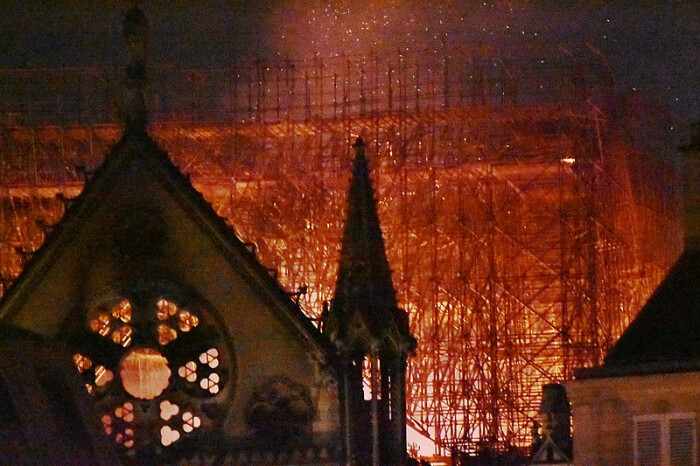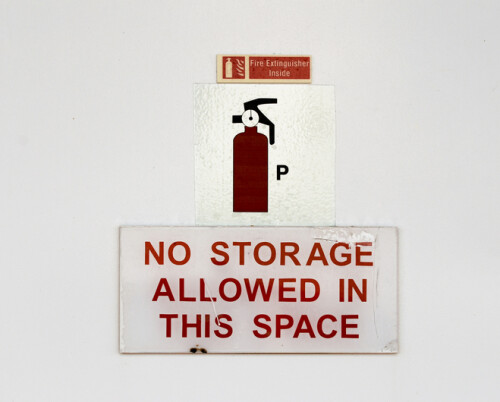Notre Dame fire sparks calls for local church reviews

Photo of Notre Dame de Paris by Hossam Ouda.
By Erik Alsgaard
When was the last time your church held a fire drill on Sunday morning? If you don’t remember, or you answered “never,” this story is especially for you.
The recent fire at Notre Dame Cathedral in Paris made front-page news around the world. Images of the ancient church’s roof engulfed in flames are etched in many people’s minds, along with the question: how could this happen?
While investigators do their work to pinpoint the cause, leaders in the Baltimore-Washington Conference are using this tragedy to remind congregations that they, too, are at risk. And while there is always risk, there are certain things churches can do to reduce it.
Perhaps the first step is to make sure the church’s insurance policies are up to date. The United Methodist Book of Discipline directs the trustees of every local church to review their insurance annually (¶2533.2), including fire insurance, and that's a good idea, said John Strawbridge, chair of the BWC’s Board of Trustees.
“I can recommend from personal experience,” he said, “that trustees can use this review to be sure they are getting the best coverage and the best rate. Last year my own church was able to save several thousand dollars by evaluating our policy and renegotiating our rate.”
Fire prevention is also critical, Strawbridge said. In addition to serving the BWC Trustee committee, he’s Lay Leader of Lovely Lane UMC in Baltimore, vice president of the United Methodist Historical Society, communications coordinator for the Strawbridge Shrine Association, and a direct descendant of Robert and Elizabeth Strawbridge, whose farmhouse still stands and was the first meeting place for Methodism in America.
It is important that every church have adequate smoke detectors, Strawbridge said. It’s best if they can be part of an overall security system, but even individual smoke detectors are good if the church has enough of them and tests them on a regular basis.
“Batteries should be changed every year,” he said. “Don't wait for that annoying ‘beep’ that tells you the battery is low; that means it's already late.”
The next line of defense are good fire extinguishers that are easy to locate. Like the smoke detectors, fire extinguishers should be checked every year, Strawbridge said, but a professional company should inspect and certify them. They will affix a current tag to each one.
Special areas to be concerned about, he said, are the kitchen, any classrooms or daycare areas, the social hall and the sanctuary. “Fire extinguishers in these places should be very visible and easily accessible,” Strawbridge said. “Every church trustee should be familiar with how to operate your fire extinguishers.”
And while protecting our buildings is important, Strawbridge added, “our most valuable resource is our people. So, don't neglect to take fire safety plans to protect your flock.”
And that means fire drills. Most churches don't like to think this way, he said, but it's a good idea to have them. And for churches that have Sunday School or Day Care spaces, fire drills should be considered mandatory.
“In a fire situation — even if it is a false alarm — it is easy for people to become agitated and confused and to try to leave a building the way they are used to going, and not necessarily by the fastest and safest route,” Strawbridge said. “It may break the mood of Sunday worship, but every church should use one or two Sundays a year to remind their congregations of the emergency procedures and fire exits.”
 As a Conference Trustee, Strawbridge said he has been in many churches around the conference and noticed doors and hallways blocked by stacked chairs, snow shovels, and “other things that tend to just get put out of the way.”
As a Conference Trustee, Strawbridge said he has been in many churches around the conference and noticed doors and hallways blocked by stacked chairs, snow shovels, and “other things that tend to just get put out of the way.”
Most churches are pressed for space, he admitted, “but we need to be mindful that we are not blocking important exit routes.”
He also urged local church trustees and leaders to be careful about things that get stored next to radiators, space heaters, coffee pots, or hot water tanks; anything that generates heat.
“Look for these potential hazards and be sure to keep these areas clear,” Strawbridge said. “Put yellow tape on the floor if you find people keep storing things in these areas. We like to be people of hope, but it is the job of the church trustees —of everyone in church leadership really —to consider the ‘worst case scenario’ and to be proactive in preventing bad situations from becoming dangerous ones.”
